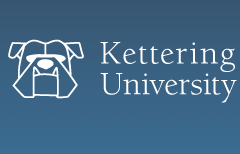Document Type
Article
Publication Date
2-1998
Publication Title
Formal Specification Column: Bulletin of the EATCS 64
Abstract
Hartmut Ehrig asked the first author to write for this column what are the distinguishing features of the ASM approach to specification and verification of complex computing systems. In [21] an attempt had already been made to answer that question by discussing, in general comparative terms, some specific features which are characteristic for the ASM approach with respect to other well known approaches in the literature. That explanation seems to have been understood, as shown by the many positive reactions, but even more the numerous critical reactions of colleagues in the field who felt—rightly—that ASMs put justified doubt on cherished denotational, declarative, logical, functional and similar widespread beliefs in pure, i.e. not operational methods. Nevertheless some dissatisfaction remained with that paper because the discussion, in a sense unavoidably, remained in general terms which have been used during the last two or three decades again and again for the justification of many other methods. The attempt to answer the question in a more concrete way led the two authors of this commented bibliography to systematically review again, revising and updating [20], what are the achievements and failures of ASM research since the discovery of the notion by Yuri Gurevich in 1988. What follows here is a way of answering Hartmut Ehrig’s question; namely, we try to let the research results speak for the method. If somebody really wants to know whether there is anything useful in the notion of ASM which has not been covered by competing methods in the literature, he or she should try out the method on a challenging (not a toy) specification or verification problem. We have no doubt that then it will become clear why so much successful research could be done in such a short period by a relatively small number of researchers, as documented in the commented bibliography below.
Rights
Open Access via The European Association for Theoretical Computer Science
Recommended Citation
Huggins, James and Borger, Egon, "Abstract State Machines 1988-1998: Commented ASM Bibliography" (1998). Computer Science Publications. 7.
https://digitalcommons.kettering.edu/computerscience_facultypubs/7


